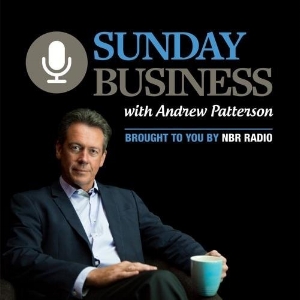Over the course of the past few years, I have observed, watched, written and spoken at numerous conferences, forums and events about how technology and science are changing the face of agriculture and food. In particular, the risk this poses traditional pastoral agricultural sectors and farmers operating in the commodity and factory farming market.
I publish this work and research not because I am out "to get" agriculture, or piss off Kiwi farmers (or any others at that). Not because I think I'm special or because I love bandying about the "disruption" overused buzzword. But because stats, advancements and investment in technology are speaking volumes for an imminent industry shake up ahead.
Because the massive and rapid market advancements occurring in technology and biotech like cellular agriculture (lab made meat), controlled environment farming (indoor vertical farms) and the plant microbiome (biological seed and crop development) say so. Because of a growing millennial consumer based demanding better ways of food production and animal farming. Because of the mind boggling sums of investment and VC going into ventures refining how food is grown and made. Because the market says so. And someone needs to be the messenger. No matter how bleak the message.
The current market trends, science and technology progression and investment into thereof, quite simply, are a dead giveaway of what is coming. A trifecta recipe of disruption for conventional ag. And the emergence of the new world of Ag2.0. Why. Can't. We. Just. Accept. This?
Just read my recent story Synthetic Biology vs Paris or one my of my more controversial pieces aptly titled - The Detroit of Agriculture - if you need some numbers or more proof.
But still, despite the numbers, the trends and the trailblazers I provide by way as example in my research, the agricultural sector, especially in NZ, seems to be constantly in denial of the market trends. I regularly receive hate mail, abuse and less than complementary comments from not only the agricultural community and from Kiwi farmers who feel their very existence threatened, but also from technological naysayers and members of the business community at large. So blinded by the cow, by the milky way they've creamed for the past several decades, they can not see the technological tidal wave coming crashing into their back paddocks.
Who instead of accepting the trends, the facts and the numbers, seem to think I am scaremongering and causing a mythical song and dance the industry needn't worry about. After all, as a "privileged middle class urban female", with "no history in farming", who am I to foresee the potentially dubious future ahead for conventional agriculture?
To some extent, as an isolated island nation far away from the coal face of new technological development and progress affecting the industry, I can understand how Kiwi farmers may think that the world will always want their animal raised produce. Their experience of the world is largely through the silo'ed lens of their rural back paddock. With no view of the new technology emerging in far away lands that millennial will undoubted embrace. So this resistance is to be somewhat expected.
But resistance and denial is futile. And a sentiment clearly echoed by Simon Mainwaring, CEO of global brand firm, We First, in a recent NBR interview with Andrew Patterson. A man who knows his stuff and with years of experience in observing the demise of brands and sectors, Simon presented a global message that Kiwi farmer and industry bodies (MPI, MBIE, Callaghan, MFAT et al) be wise to take heed of.
“The only thing that is truly dangerous, is to not change. If you look at the impact, the pace of change of technology these days and the shifting expectations of demographics. And if you look at our heightened awareness of the cultural landscape in which all businesses operate in the market. - if you don’t move with the market place you will become one of those many casualties" - Simon Mainwaring
I repeat for effect: If you don’t move with the market place you will become one of those many casualties.
Millennials (the world's now largest and most progressive and influential customer base) don’t care how long farmers have been around, how long their parents or grandparents loved a certain brand, or the way things were done in the past. There’s no brand loyalty any more. And when the baby boomers are gone, there will be even less. What today's consumers want is a solution that is meaningful and relevant to them - in real time. They want food produced ethically, cleanly, close to urban centres. If this involves new technology - then so be it. They will be the first to adopt it.
Instead of farmers denying the tides of technological change. Instead of trolling journalists and researchers, the agricultural sector would be wise to examine the very real market and technology trends effecting every sector - including their own. To accept the changing demographics and the rapid advancements affecting their industry and plan their strategies to meet this shift. And to realise that complacency, denial and finger pointing will only lead to a more quicker demise of faming future. Not because I said so, but because the market knows best.














